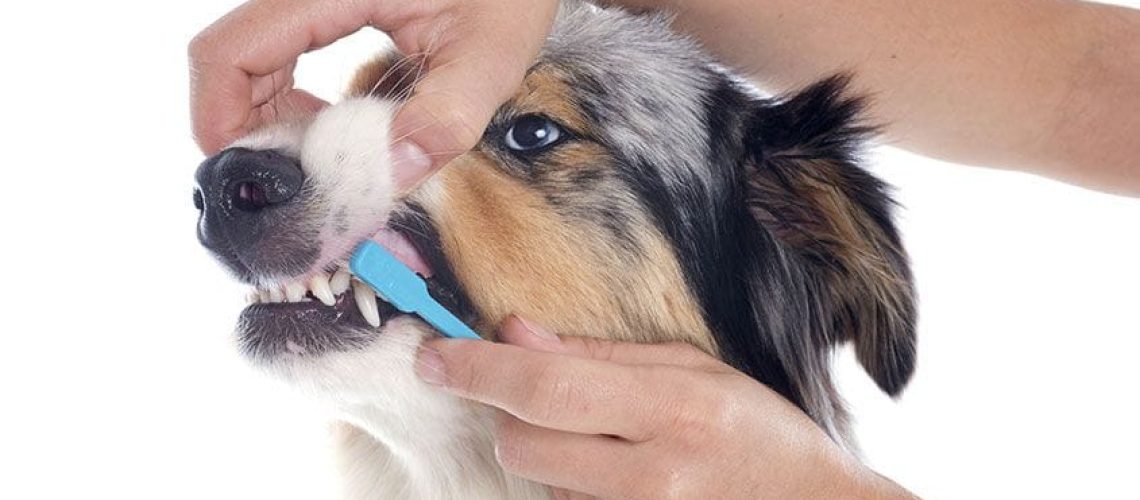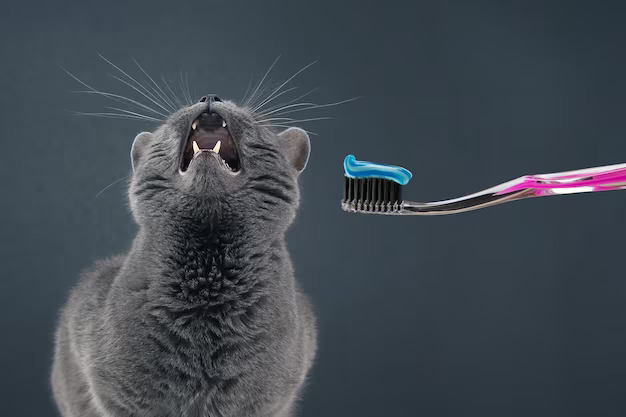Taking care of your dog's teeth is essential for their overall health and well-being. In this guide, we will provide you with expert tips and techniques to ensure your furry friend has a healthy and happy smile.
Key Takeaways:
- Regular brushing is essential for maintaining your dog's dental health.
- Use a toothbrush and toothpaste specifically designed for dogs to prevent any harm or discomfort.
- Chew toys and dental treats can help remove plaque and tartar buildup, promoting healthier teeth and gums.
- Schedule regular professional cleanings with a veterinarian to address any underlying dental issues and prevent potential complications.
- Monitor your dog's diet, as certain foods can contribute to dental problems, while others can help maintain oral hygiene.
The Importance of Taking Care of Your Dog's Teeth
As a dog owner, it is important to take care of your furry friend's teeth. Just like humans, dogs can develop dental problems if their teeth are not properly cared for. Dental issues in dogs can lead to pain, discomfort, and even more serious health problems. By taking care of your dog's teeth, you can help prevent these issues and ensure that your dog has a healthy mouth.
One of the main reasons why it is important to take care of your dog's teeth is to prevent the buildup of plaque and tartar. Plaque is a sticky film that forms on the teeth when food particles mix with saliva and bacteria. If plaque is not removed through regular brushing or dental cleanings, it can harden into tartar. Tartar is a hard substance that sticks to the teeth and can only be removed by a veterinarian. The presence of tartar on the teeth can lead to gum inflammation, bad breath, tooth decay, and even tooth loss.
Benefits of Taking Care of Your Dog's Teeth:
- Prevents dental diseases such as gingivitis and periodontal disease
- Reduces the risk of tooth decay and tooth loss
- Improves overall oral health
- Reduces bad breath
- Promotes better overall health by preventing bacteria from entering the bloodstream through the gums
Dental Problems Can Affect Your Dog's Overall Health:
Dental problems in dogs are not just limited to their mouths. If left untreated, dental issues can have a negative impact on your dog's overall health. Bacteria from infected gums can enter the bloodstream and spread to other organs, leading to more serious health problems. Studies have shown that dental diseases in dogs have been linked to heart disease, kidney disease, and other systemic conditions. By taking care of your dog's teeth, you are not only ensuring their oral health but also their overall well-being.
Signs of Dental Problems in Dogs
Dental problems in dogs can be quite common and it's important for pet owners to be aware of the signs. One of the most obvious signs is bad breath, which can indicate gum disease or tooth decay. Other signs include excessive drooling, difficulty eating, pawing at the mouth, bleeding gums, loose or missing teeth, and a change in appetite or behavior.
Common Signs of Dental Problems:
- Bad breath (halitosis)
- Excessive drooling
- Difficulty eating or chewing
- Pawing at the mouth
- Bleeding gums
- Loose or missing teeth
- Change in appetite or behavior
How Often to Brush Your Dog's Teeth
Regular brushing is essential for maintaining your dog's oral hygiene. The frequency of brushing depends on various factors such as your dog's breed, age, and overall dental health. As a general guideline, it is recommended to brush your dog's teeth at least two to three times a week. However, some dogs may require daily brushing if they are prone to dental issues.
Factors Affecting Brushing Frequency:
- Breed: Certain breeds are more susceptible to dental problems and may require more frequent brushing.
- Age: Puppies may need less frequent brushing initially but should gradually transition to a regular brushing routine.
- Dental Health: Dogs with existing dental issues may need more frequent brushing as part of their treatment plan.
Using Human Toothpaste for Your Dog's Teeth
While it may be tempting to use your own toothpaste for your dog, it is important to note that human toothpaste is not safe for dogs. Human toothpaste often contains ingredients such as fluoride and xylitol, which can be toxic to dogs if ingested. Instead, opt for specially formulated dog toothpaste that is safe for their consumption.
Why You Should Use Dog Toothpaste:
- Dog-friendly formulation: Dog toothpaste is specifically designed to meet the oral health needs of dogs.
- No harmful ingredients: Dog toothpaste does not contain substances that can be toxic or harmful to dogs.
- Pleasant flavors: Dog toothpaste comes in flavors that are appealing to dogs, making the brushing experience more enjoyable.
Other Ways to Keep Your Dog's Teeth Clean
In addition to regular brushing, there are other measures you can take to keep your dog's teeth clean and healthy. One effective method is providing dental chews or treats that help reduce plaque and tartar buildup. These treats are designed to promote chewing action, which helps remove debris from the teeth. Additionally, incorporating dry kibble into your dog's diet can also contribute to better dental health by reducing plaque formation.
Additional Tips for Dental Care:
- Regular professional dental cleanings: Schedule regular dental cleanings with your veterinarian to ensure a thorough cleaning of your dog's teeth.
- Dental rinses or water additives: Consider using dental rinses or water additives that can help maintain oral hygiene between brushings.
- Dental toys: Provide your dog with chew toys specifically designed for promoting dental health, such as those with ridges or bristles.
Dental Treats and Toys for Your Dog's Oral Hygiene
Choosing the right dental treats and toys can greatly contribute to your dog's oral hygiene. Look for products that are specifically designed to promote dental health, such as those with ridges or textures that help remove plaque and tartar. Dental treats should be low in calories and made from quality ingredients to ensure they are beneficial for your dog's overall health.
Types of Dental Treats and Toys:
- Dental chews: These treats are designed to be chewed for an extended period, promoting saliva production and reducing plaque buildup.
- Rubber chew toys: Durable rubber toys with textured surfaces can help massage gums and remove debris from teeth.
- Rope toys: Rope toys can act as a flossing tool, helping to remove plaque between teeth while providing a fun chewing experience.
The Harmful Effects of Tartar on Your Dog's Teeth
Tartar buildup on your dog's teeth can have detrimental effects on their oral health. Tartar is hardened plaque that forms when bacteria in the mouth combine with food particles and saliva. If left untreated, tartar can lead to gum disease, tooth decay, tooth loss, and even systemic health issues. It is important to address tartar buildup through regular dental care to prevent these complications.
Consequences of Tartar Buildup:
- Gum disease (gingivitis): Tartar irritates the gums, leading to inflammation, redness, swelling, and potential infection.
- Periodontal disease: Advanced gum disease caused by tartar buildup can result in bone loss around the teeth and eventual tooth loss.
- Systemic health issues: The bacteria present in tartar can enter the bloodstream and potentially affect other organs, leading to systemic health problems.
Preventing Dental Diseases in Dogs
Prevention is key when it comes to maintaining your dog's dental health. By implementing a few simple practices, you can significantly reduce the risk of dental diseases. Regular brushing, providing appropriate dental treats or toys, and scheduling professional dental cleanings are all important steps in preventing dental diseases in dogs. Additionally, feeding a balanced diet and avoiding excessive sugary or sticky foods can also contribute to better oral hygiene.
Tips for Preventing Dental Diseases:
- Establish a regular brushing routine and stick to it.
- Choose high-quality dental treats and toys that promote chewing action.
- Schedule annual or bi-annual professional dental cleanings with your veterinarian.
- Feed a balanced diet that supports good oral health.
- Avoid giving your dog sugary or sticky foods that can contribute to plaque formation.
When to Take Your Dog for a Dental Check-Up at the Vet
Regular dental check-ups are crucial for maintaining your dog's oral health. It is recommended to take your dog for a dental check-up at least once a year, although some dogs may require more frequent visits depending on their individual needs. Additionally, if you notice any signs of dental problems such as bad breath, swollen gums, or difficulty eating, it is important to schedule an appointment with your veterinarian promptly.
Indications for Dental Check-Up:
- Annual check-up: Schedule a routine dental check-up at least once a year to assess your dog's oral health.
- Signs of dental problems: If you observe any signs of dental issues, such as bad breath or bleeding gums, seek veterinary attention.
- Preventive care: Regular check-ups can help identify early signs of dental diseases and prevent them from progressing.
| In Summary | |
| Step | Action |
| 1 | Brush your dog's teeth regularly using a dog-specific toothbrush and toothpaste. |
| 2 | Provide dental chews or toys to help reduce plaque buildup. |
| 3 | Schedule regular professional dental cleanings with your veterinarian. |
| 4 | Monitor your dog's oral health and consult a vet
How can I get plaque off my dog's teeth?There are various oral home care products available that can help remove plaque, such as dental treats, dental wipes, pet-specific toothpaste, and gels used for tooth brushing. Tooth brushing is considered the most effective method for oral home care. Do Greenies actually work?In the short term, dental chews such as Greenies dog treats can effectively eliminate plaque and tartar from your dog's teeth. However, in the long run, they actually contribute to the build-up of plaque and tartar. How can I get plaque off my dog's teeth naturally?To effectively remove plaque, it is recommended to brush your dog's teeth daily using a toothbrush specifically designed for dogs and toothpaste that is safe for them. Occasionally brushing their teeth will not eliminate plaque buildup, but regular brushing will promote oral and dental health for your pet. Is it bad to scrape plaque off your dogs teeth?It is not advisable to try and remove plaque or tartar from your pet's teeth by yourself, as this could harm the tooth enamel and potentially cause gum bleeding. We suggest seeking the services of a trustworthy and qualified professional to carry out a dental cleaning procedure. Will baking soda remove tartar from dog's teeth?Using baking soda to brush your dog's teeth is not advisable as it can cause stomach issues and can even be toxic in large quantities. Instead, it is recommended to use a toothbrush designed for dogs and toothpaste specifically made for them to address odors. Does coconut oil remove plaque from dog's teeth?If you want a more organic method of cleaning your dog's teeth, you might want to try coconut oil. Coconut oil is completely safe for dogs to ingest and can assist in reducing the accumulation of plaque and tartar on their teeth. To utilize coconut oil for brushing your dog's teeth, just apply a small quantity onto their teeth and gums. More Reads
Dr. Clara Bennett
Hello, fellow pet enthusiasts! I'm Dr. Clara Bennett, your go-to expert on all things pets. With a background in veterinary medicine and a passion for nutrition, I've spent years diving deep into the world of cats, dogs, birds, horses, and the products that keep them thriving. From the English countryside, I've witnessed the magic of animals and am here to share my knowledge, ensuring your pets receive the best care. Together, let's master the art of pet care!
All Posts »
Next Steps In Mastering Cat CareNext Steps In Mastering Dog CareJoin Our NewsletterSubscribe to receive our latest updates in your inbox! |















